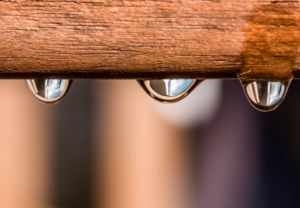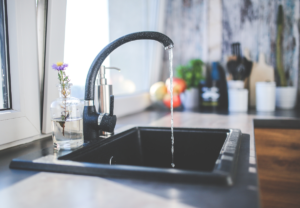Water Damage Emergencies
Water damage can be a major emergency, and it can happen in many different ways. Whether it’s due to a burst pipe, flooding, or other sources of water, it can cause significant damage to your home or property if not addressed quickly. In this article, we will discuss why water damage is an emergency, provide examples of different types of water damage, and offer some solutions for dealing with water damage.
Why is Water Damage an Emergency?
Water damage can cause a lot of problems, and if not dealt with promptly, can lead to significant damage to your home or property. The following are some of the reasons why water damage is an emergency:
- Mold and Mildew Growth: When water sits for an extended period, it creates a breeding ground for mold and mildew growth. Mold and mildew can cause health issues, including respiratory problems, allergic reactions, and skin irritations.
- Structural Damage: Water damage can weaken the structural integrity of your home or property, leading to significant damage to the foundation, walls, and floors. This can lead to expensive repairs and the need for professional restoration services.
- Electrical Damage: Water can cause electrical damage to your home’s wiring, appliances, and electrical systems, leading to power outages, short circuits, and fire hazards.
- Health and Safety Issues: Water damage can create hazardous conditions, including slip and fall hazards, contamination of drinking water, and electrical hazards.
 Examples of Water Damage Emergencies
Examples of Water Damage Emergencies
Water damage can happen in many different ways, and the severity of the damage can vary depending on the source of the water and how long it has been sitting. The following are some examples of different types of water damage emergencies:
- Burst Pipes: A burst pipe can cause significant water damage to your home or property, leading to flooding, structural damage, and mold growth. Burst pipes are often caused by extreme temperatures or old, corroded pipes.
- Flooding: Flooding can be caused by severe weather conditions, such as heavy rain, hurricanes, and flash floods. Flooding can cause significant damage to your home or property, including structural damage, mold growth, and electrical hazards.
- Sewage Backup: Sewage backups can cause significant water damage and pose health hazards due to contamination. Sewage backups can be caused by a variety of factors, including clogged pipes, tree roots, and malfunctioning septic systems.
- Roof Leaks: A leaky roof can cause water damage to your home or property, leading to structural damage, mold growth, and electrical hazards. Roof leaks can be caused by a variety of factors, including weather damage, old roofing materials, and poor installation.
 Solutions for Dealing with Water Damage
Solutions for Dealing with Water Damage
If you experience water damage, it’s important to address it as soon as possible to minimize the damage and prevent further problems. The following are some solutions for dealing with water damage:
- Turn Off the Water: If the water damage is caused by a burst pipe or other plumbing issue, turn off the water main to your home or property to stop the flow of water.
- Remove Water: Use a wet/dry vacuum or other water extraction tools to remove standing water from your home or property. If you do not have access to these tools, you can use towels or a mop to soak up the water.
- Dry Out the Area: Use fans and dehumidifiers to dry out the affected area. If the water damage is severe, you may need to use professional drying equipment.
- Disinfect the Area: Use a disinfectant cleaner to clean and disinfect the affected area. This will help prevent the growth of mold and mildew and eliminate any bacteria or other contaminants.
- Call a Professional Restoration Service: If the water damage is severe or ifyou are unable to address the issue yourself, it’s important to call a professional restoration service. A professional restoration service can assess the damage, provide a plan for restoration, and use specialized equipment to dry out and repair the affected areas.
- Check for Structural Damage: If you suspect that the water damage has caused structural damage, it’s important to have a professional assess the damage and make any necessary repairs. This will ensure the safety and stability of your home or property.
- Prevent Future Water Damage: Once the water damage has been addressed, it’s important to take steps to prevent future water damage. This may include fixing any plumbing issues, installing a sump pump, or making sure your roof and gutters are in good condition.
Conclusion
Water damage can be a significant emergency, and it’s important to address it quickly to minimize the damage and prevent further problems. Whether it’s due to a burst pipe, flooding, or other sources of water, water damage can cause mold growth, structural damage, electrical hazards, and health and safety issues.
If you experience water damage, it’s important to turn off the water, remove the water, dry out the area, disinfect the area, and call a professional restoration service if necessary. Additionally, it’s important to check for structural damage and take steps to prevent future water damage. By taking these steps, you can ensure the safety and stability of your home or property and minimize the damage caused by water emergencies.
